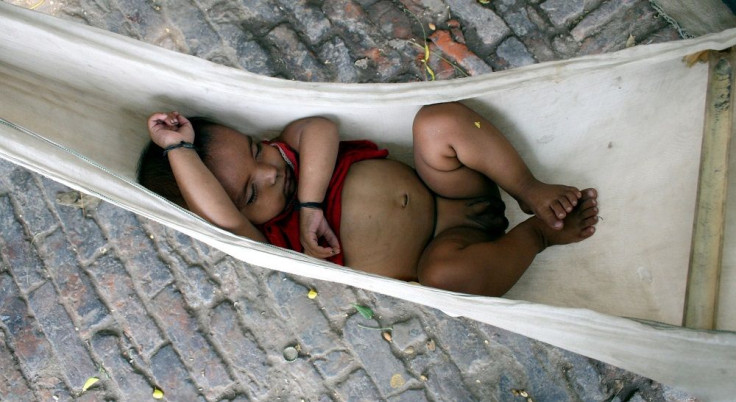18-month Indian boy with sexual organs of adult male has rare condition precocious puberty

Puberty normally begins when children reach 12, but for an Indian boy it started about 10 years earlier. Doctors say the culprit behind this rare hormonal condition is precocious puberty.
Because of the condition, the Indian boy, Vaibhav, is undergoing treatment in a Delhi hospital after he developed the sexual organs of an adult male which his parents noticed when he was just six months old. At 18 months, they brought him to the doctors.
The Hindustan Times reports that at one-and-a-half years old, Vaibhav was 95 centimetres tall but was starting to grow facial and body hair and his voice was beginning to break. The condition could cause the innocent child to experience sexual urges at that age.
“We thought maybe he was just a big baby, so we did not take him to the doctor … But by the time he was one, it was apparent there was something wrong,” the boy’s mother says.
Vaishakhi Rustagi, the boy’s doctor, says if Vaibhav was not treated, he would become violent because he would not understand the hormonal changes within his young body. He would remain on medication until the boy matures enough to understand his condition.
Tests showed that the boy’s testosterone levels were 500-600 nanogramme per decilitre, while a one-year-old baby usually has 20 ng/dl. Rustagi says that only one in 100,000 children are born with the condition, which increases to one to two in 100,000 boys between ages 8 and 10.
In 1939, a girl with precocious puberty became the world’s youngest mother at five years and seven months. Her parents thought she had a tumour, but when they brought her to a hospital, she gave birth to a baby boy.
Rustagi explains, “It is a rare case that happens once in 10 odd years. Precocious puberty is traumatic for a child of his age. The baby can’t express his feelings or understand what is happening to him, while his parents are left confused.”





















